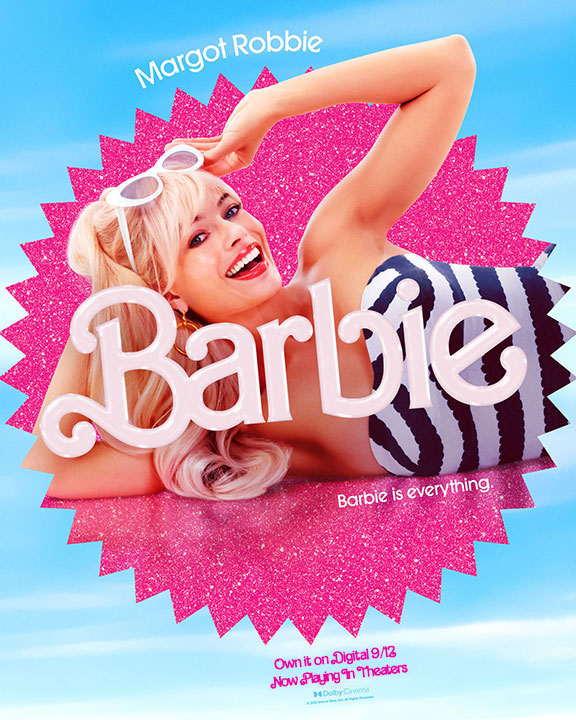Source: barbie-themovie.com

Source: barbie-themovie.com
In an era of reboots, remakes, sequels, and cinematic universes, “Barbie” proves to be more than a shameless cash grab. To celebrate Spirit Week’s “Welcome To Champland” theme, and to correlate with the film’s home release, I’ve decided to delve into what makes Barbie one of the best films of the year. By blending camp, layered writing, and silly humor, Greta Gerwig creates a dense and relatable comedy, which proves to be a universal hit.
In the marketing for this movie, it was advertised as everything we expected: fun, colorful, funny, and female-centric. The star-studded cast drew many people in, and it absolutely helped that it was released alongside the tonally contrasting “Oppenheimer”, resulting in the cinema-flooding “Barbenheimer” phenomenon.
Though it is the silly comedy fans were hoping for, “Barbie” proves to be more thematically rich than anyone could have hoped. Gerwig, alongside frequent collaborator Noah Baumbach, creates a powerful story that anyone can connect with and relate to.
The plot of the film hinges on Barbie and Ken having two existential crises, both about their worth and identity. They explore the real world, hoping to better understand life and themselves, though they end up clashing when the Ken’s desire more power and respect in society. By flipping the gender roles, Gerwig is able to create an interesting perspective of the gender binary, which helps her land her point on double standards and self-worth.
By having a world run by women be overthrown by men, and simplifying a lot of gender politics, the audience is able to have a lot of sympathy for the Barbie’s and the Ken’s, helping eliminate any bias.
In the end, Barbieland may return to its matriarchy, but the idea of “Barbie and Ken” is forever changed. Robbie’s Barbie realizes that her worth isn’t defined by her looks, and Gosling’s Ken realizes that his worth isn’t defined by whether a woman loves him or not. In this revelation, they tear down the standards set by their society, as well as the real world, and become free to explore who they truly are as individuals.
Margot Robbie and Ryan Gosling are incredible, working with perfect chemistry to lead a hilarious supporting cast. Gosling gets to exercise his comedy chops for the first time since 2016’s “The Nice Guys” and doesn’t miss a beat, while Robbie doubles down on the range she displayed in last year’s “Babylon”, drawing empathy and similar epiphanies out of the audience.
Gerwig expertly employs recent and well-established comedic stars, allowing the supporting cast to shine as bright as the film’s two leads. Simu Liu is perfect as Ken’s foil, ramping up the cheesy bully personality, and Kate McKinnon plays Weird Barbie with a great mix of wackiness and humor.
There is no detail forgotten in this film. The set design is whimsical and attention-grabbing, faithfully bringing pieces of Barbie’s history to life while giving the movie a very distinct style. Likewise, the actors wear a number of immediately iconic outfits based on outfits from various Barbie and Ken dolls, reinforcing the film’s style and helping sell the childish vibe.
Even the actor’s movements are stiff and plastic-like, and the props are made to look just like pieces of a toy set. All this comes together with the cast’s superb acting to give the film its silly and charming tone.
It isn’t often Hollywood sends out a campy comedy anymore, but with its roots in an established property, Warner Bros was willing to take a chance on this film. “Barbie” had impossibly high expectations, and somehow still exceeded them in all aspects, while offering plenty of surprises in its detailed plot.
With “Barbie”, Gerwig exercises the range of someone who has so much skill and experience in the film industry. Backed by a perfect cast and unbothered by Warner Bros, she has created a modern feminist masterpiece, which is worthy of being dubbed the movie of the summer, and possibly, the movie of the year.

